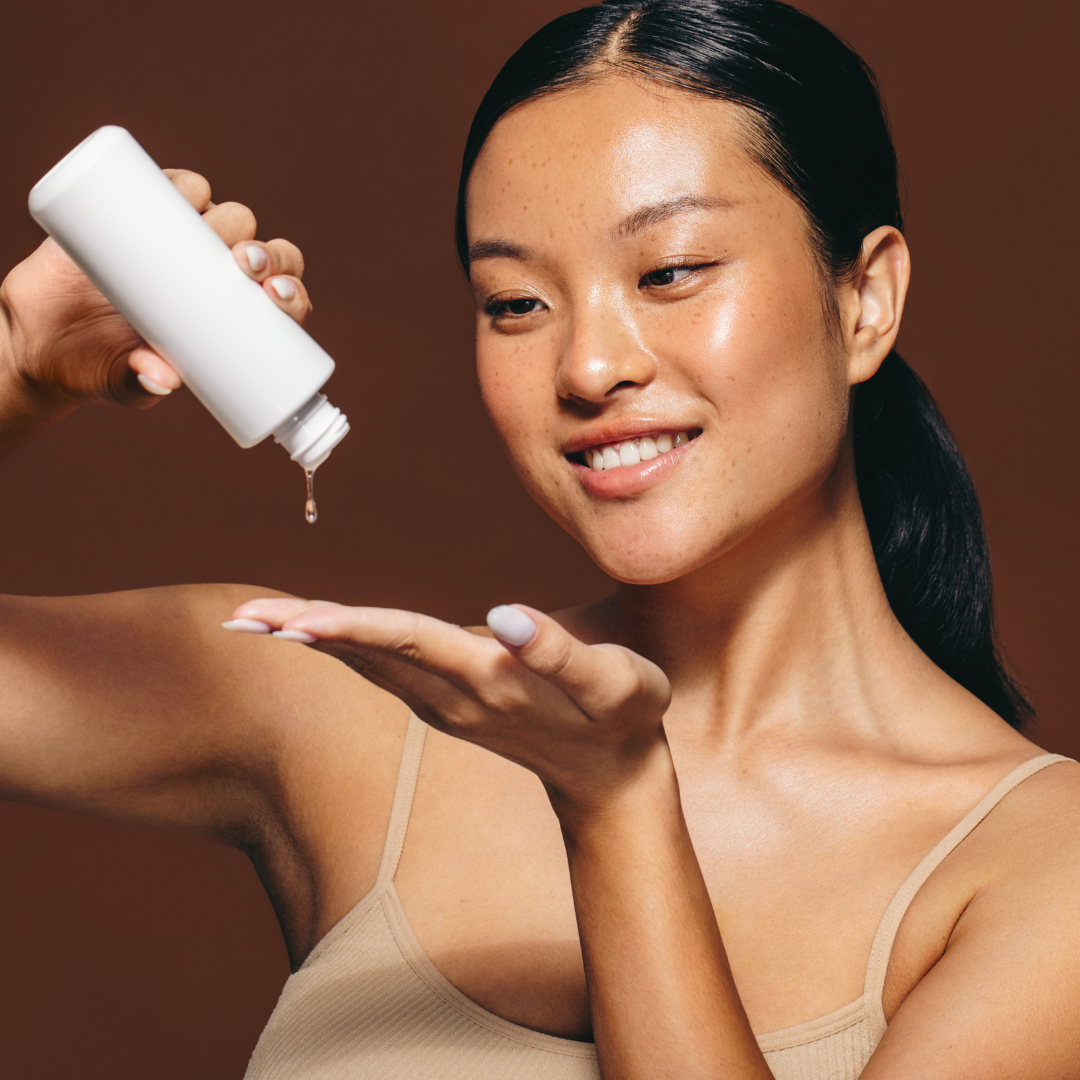
In the ever-evolving world of skincare, certain ingredients stand out for their efficacy and versatility. Niacinamide, also known as Vitamin B3, is one such ingredient that has garnered significant attention and praise from dermatologists and skincare enthusiasts alike. This powerhouse vitamin offers a plethora of benefits for the skin, making it a staple in many skincare routines. In this comprehensive guide, we will delve into the science behind niacinamide, exploring how it works, why it’s effective, and how you can incorporate it into your skincare regimen.
What is Niacinamide?
Niacinamide, also referred to as nicotinamide, is a water-soluble form of Vitamin B3. It is an essential nutrient that supports many bodily functions, including maintaining healthy skin. Unlike other vitamins, niacinamide is non-irritating and suitable for all skin types, including sensitive skin. It is found in many foods, including meat, fish, milk, eggs, green vegetables, and cereals. However, when it comes to skincare, niacinamide is often used in topical formulations such as serums, moisturizers, and creams.
The Science Behind Niacinamide
Cellular Energy Production
Niacinamide plays a crucial role in cellular energy production. It is a precursor to two important coenzymes: nicotinamide adenine dinucleotide (NAD+) and nicotinamide adenine dinucleotide phosphate (NADP+). These coenzymes are vital for various metabolic processes, including energy production and DNA repair. By boosting NAD+ levels, niacinamide helps to enhance the overall energy metabolism of skin cells, promoting healthier and more resilient skin.
Antioxidant Properties
One of the key benefits of niacinamide is its potent antioxidant properties. Antioxidants are compounds that protect the skin from oxidative stress caused by free radicals. Free radicals are unstable molecules that can damage skin cells, leading to premature aging and other skin issues. Niacinamide neutralizes these free radicals, reducing oxidative damage and protecting the skin from environmental stressors such as UV radiation and pollution.
Anti-Inflammatory Effects
Inflammation is a common underlying factor in many skin conditions, including acne, rosacea, and eczema. Niacinamide has been shown to possess anti-inflammatory properties, making it an effective ingredient for calming irritated skin and reducing redness. By inhibiting the production of pro-inflammatory cytokines, niacinamide helps to soothe and stabilize the skin barrier, preventing flare-ups and promoting a more even complexion.
Regulation of Sebum Production
Excessive sebum production is a major contributor to acne and oily skin. Niacinamide has been found to regulate sebum production, helping to balance oil levels in the skin. This not only reduces the occurrence of acne breakouts but also minimizes the appearance of pores. By keeping sebum production in check, niacinamide ensures that the skin remains clear and less prone to congestion.
Enhancement of Skin Barrier Function
The skin barrier is the outermost layer of the skin that protects against environmental aggressors and prevents moisture loss. A compromised skin barrier can lead to dryness, sensitivity, and increased susceptibility to irritants. Niacinamide strengthens the skin barrier by stimulating the production of ceramides, which are essential lipids that maintain barrier integrity. This helps to improve the skin’s resilience, hydration levels, and overall health.
Reduction of Hyperpigmentation
Hyperpigmentation, including dark spots and uneven skin tone, is a common concern for many individuals. Niacinamide has been shown to inhibit the transfer of melanin (pigment) to skin cells, thereby reducing the appearance of hyperpigmentation. By interfering with the process of melanin synthesis, niacinamide promotes a more even complexion and helps to fade existing dark spots over time.
Anti-Aging Benefits
Aging skin is characterized by the loss of collagen and elastin, leading to wrinkles, fine lines, and sagging. Niacinamide stimulates the production of collagen and elastin, which are essential proteins for maintaining skin structure and elasticity. This helps to smooth out wrinkles and improve skin firmness, resulting in a more youthful and rejuvenated appearance.

How to Use Niacinamide in Your Skincare Routine
Niacinamide Serums
Niacinamide serums are a popular choice for delivering concentrated doses of this potent ingredient. These serums can be applied after cleansing and before moisturizing. Look for serums that contain at least 5% niacinamide for optimal results. To use, apply a few drops to your fingertips and gently massage onto your face, focusing on areas of concern such as the T-zone, cheeks, and forehead.
Moisturizers with Niacinamide
Incorporating niacinamide into your daily moisturizer is another effective way to reap its benefits. Many moisturizers are formulated with niacinamide to provide hydration while addressing specific skin concerns. Apply your niacinamide-infused moisturizer after your serum, ensuring even coverage across your face and neck.
Niacinamide in Combination with Other Ingredients
Niacinamide is versatile and can be combined with other active ingredients to enhance its effects. For example:
- Niacinamide and Hyaluronic Acid: This combination boosts hydration and plumps the skin.
- Niacinamide and Retinol: Together, they enhance anti-aging benefits while minimizing irritation.
- Niacinamide and Vitamin C: While there was once a belief that these two should not be used together, recent research suggests they can be used in the same routine for brightening and anti-aging benefits.
Frequency of Use
Niacinamide is gentle enough to be used daily, both in the morning and evening. However, it is always best to start with a lower concentration if you have sensitive skin and gradually increase as your skin builds tolerance.
Potential Side Effects and Precautions
While niacinamide is generally well-tolerated, some individuals may experience mild irritation, redness, or stinging, especially when using higher concentrations. To minimize the risk of side effects, it is recommended to:
- Perform a patch test before applying niacinamide to your entire face.
- Start with a lower concentration and gradually increase as your skin adjusts.
- Avoid using multiple new products simultaneously to identify any potential irritants.
- Consult a dermatologist if you have any concerns or experience persistent irritation.
The Effectiveness of Niacinamide: What Research Says
1. Clinical Studies on Niacinamide
Numerous clinical studies have demonstrated the efficacy of niacinamide in improving various skin conditions. For instance, a study published in the Journal of Cosmetic Dermatology found that a 5% niacinamide moisturizer significantly improved skin elasticity, barrier function, and the appearance of fine lines and wrinkles after 12 weeks of use (Draelos, 2013). Another study in the British Journal of Dermatology reported that niacinamide reduced the severity of acne and improved skin texture and redness (Draelos, 2006).
2. Consumer Reviews and Testimonials
In addition to clinical research, consumer reviews and testimonials provide valuable insights into the real-world effectiveness of niacinamide. Many users report noticeable improvements in their skin’s texture, tone, and overall appearance after incorporating niacinamide into their routines. Positive feedback often highlights the ingredient’s ability to reduce acne, hyperpigmentation, and signs of aging.
Frequently Asked Questions About Niacinamide
1. Can Niacinamide Be Used with Other Active Ingredients?
Yes, niacinamide is compatible with many other active ingredients, including hyaluronic acid, retinol, and vitamin C. It can enhance the efficacy of these ingredients and provide additional benefits.
2. Is Niacinamide Suitable for All Skin Types?
Yes, niacinamide is suitable for all skin types, including sensitive skin. Its gentle nature makes it a versatile ingredient that can address various skin concerns without causing irritation.
3. How Long Does It Take to See Results with Niacinamide?
Results can vary depending on individual skin types and concerns. However, many people begin to notice improvements in their skin’s texture and tone within a few weeks of consistent use.
4. Can Niacinamide Help with Acne?
Yes, niacinamide can help with acne by regulating sebum production, reducing inflammation, and improving skin barrier function. It is an effective ingredient for managing both active breakouts and preventing future ones.
5. What Concentration of Niacinamide Should I Use?
For most people, products containing 5% niacinamide are effective and well-tolerated. However, those with sensitive skin may benefit from starting with a lower concentration, such as 2-3%, and gradually increasing as their skin builds tolerance.

Incorporating Niacinamide into a Holistic Skincare Routine
While niacinamide is a powerful skincare ingredient, achieving optimal skin health requires a holistic approach. Here are some additional tips to complement the benefits of niacinamide:
1. Maintain a Healthy Diet
A balanced diet rich in vitamins, minerals, and antioxidants supports overall skin health. Incorporate foods high in Vitamin B3, such as chicken, turkey, and leafy greens, to enhance the effects of topical niacinamide.
2. Stay Hydrated
Hydration is key to maintaining healthy skin. Drink plenty of water throughout the day to keep your skin hydrated and functioning optimally.
3. Protect Your Skin from Sun Damage
UV radiation is a major contributor to skin aging and damage. Use a broad-spectrum sunscreen with at least SPF 30 daily, even on cloudy days, to protect your skin from harmful UV rays.

4. Get Enough Sleep
Adequate sleep is essential for skin repair and regeneration. Aim for 7-9 hours of quality sleep each night to ensure your skin has time to rejuvenate and maintain a healthy appearance.
5. Manage Stress
Chronic stress can negatively impact your skin, leading to conditions such as acne, eczema, and psoriasis. Incorporate stress-management techniques such as yoga, meditation, or deep breathing exercises into your routine to promote overall skin health.
6. Avoid Smoking and Excessive Alcohol Consumption
Smoking and excessive alcohol consumption can accelerate skin aging and damage. Quitting smoking and limiting alcohol intake can significantly improve your skin’s health and appearance.
Personalized Skincare with CircleDNA
Understanding your unique genetic makeup can further enhance your skincare routine. The CircleDNA Premium Test offers personalized insights into your skin’s needs, helping you make informed decisions about your skincare products and regimen. By knowing your genetic predispositions, you can tailor your skincare routine to address specific concerns and achieve optimal results.
Conclusion
Niacinamide is a multifaceted skincare ingredient that offers numerous benefits, from improving skin barrier function and reducing inflammation to minimizing hyperpigmentation and enhancing anti-aging efforts. Its versatility and gentle nature make it suitable for all skin types, and it can be easily incorporated into any skincare routine.
The science behind niacinamide supports its efficacy in promoting healthier, more resilient skin. By understanding how niacinamide works and incorporating it into a comprehensive skincare regimen, you can achieve significant improvements in your skin’s appearance and overall health.
For those looking to personalize their skincare routine further, the CircleDNA Premium Test provides valuable insights into your genetic makeup, helping you choose the best products and practices for your unique skin needs. By combining the power of niacinamide with a tailored skincare approach, you can unlock the full potential of your skin’s health and beauty.
Incorporating niacinamide into your skincare routine, along with maintaining a healthy lifestyle and using personalized insights from the CircleDNA Premium Test, can help you achieve the best possible results for your skin. Whether you’re addressing acne, signs of aging, or simply looking to enhance your skin’s overall health, niacinamide is a valuable addition to any regimen.
References
Carmody, R. N., & Walton, K. (2019). Effects of soaking oats on phytic acid reduction and mineral availability. Journal of Food Science and Nutrition, 8(3), 455-462.
Draelos, Z. D. (2006). The effect of 2% niacinamide on facial sebum production. Cutis, 78(3), 135-138.
Draelos, Z. D. (2013). A split-face, randomized, vehicle-controlled study of a niacinamide-containing moisturizer in the improvement of the appearance of facial skin. Journal of Cosmetic Dermatology, 12(1), 43-47.
Jenkins, D. J., Kendall, C. W., Augustin, L. S., Franceschi, S., Hamidi, M., Marchie, A., … & Axelsen, M. (2002). Glycemic index: overview of implications in health and disease. The American Journal of Clinical Nutrition, 76(1), 266S-273S.Whitehead, A., Beck, E. J., Tosh, S., & Wolever, T. M. (2014). Cholesterol-lowering effects of oat beta-glucan: a meta-analysis of randomized controlled trials. The American Journal of Clinical Nutrition, 100(6), 1413-1421






